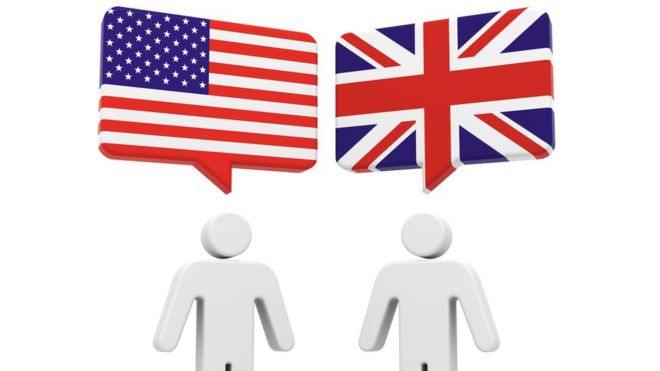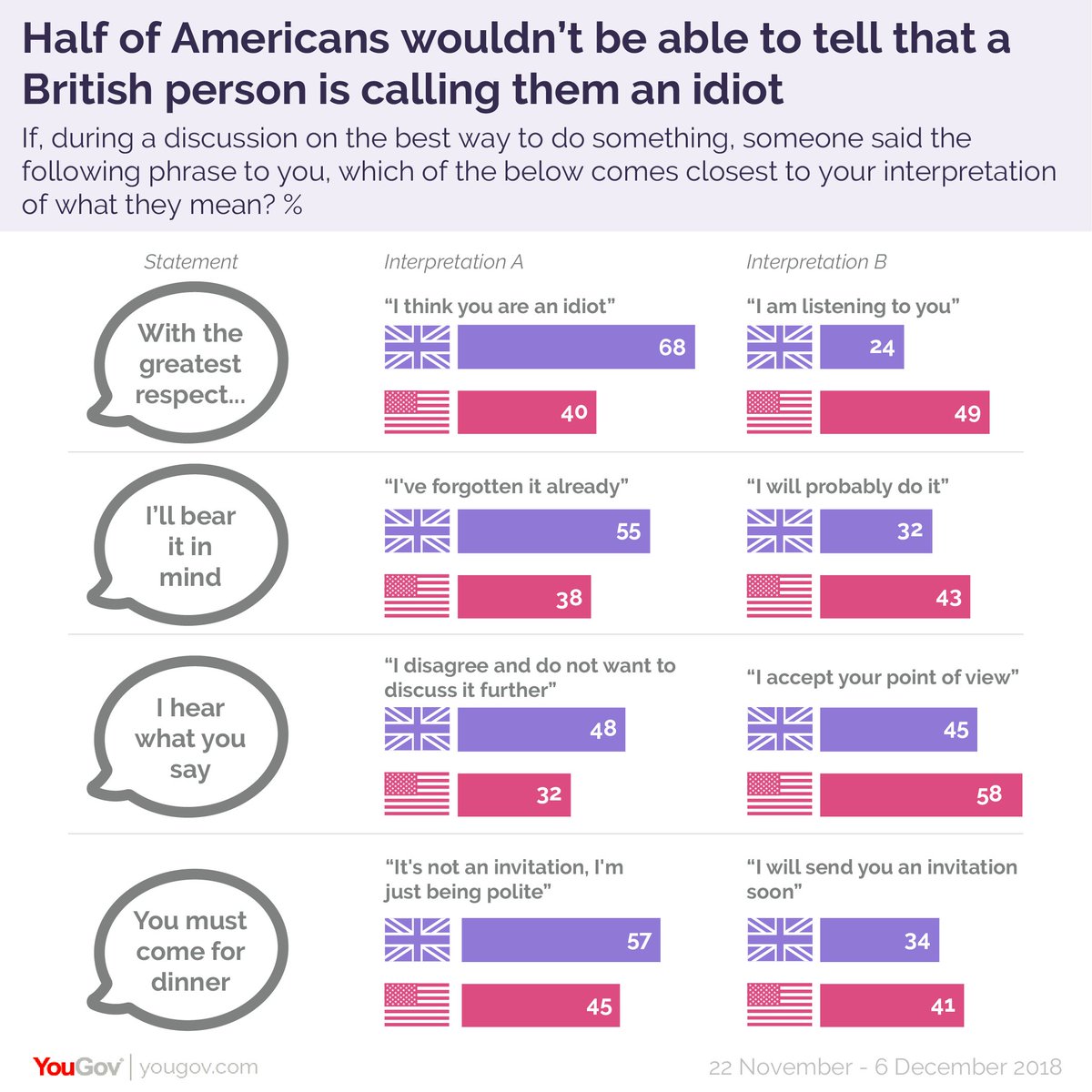YouGov survey: British sarcasm 'lost on Americans'
 GETTY IMAGES
GETTY IMAGES
Britons like to think they have a "special relationship" with the US, based on a common language and cultural, historical and political ties.
But, according to one of the UK's most respected polling companies, there's one chasm the English language can't always bridge - the British love of passive-aggressive statements.
In the words of YouGov, "half of Americans wouldn't be able to tell that a Briton is calling them an idiot".
YouGov showed a number of common British phrases, including "with the greatest respect", "I'll bear it in mind" and "you must come for dinner", to Britons and Americans.
"While not all the phrases show a difference in transatlantic understanding, there are some statements where many Yanks are in danger of missing the serious passive aggression we Brits employ," YouGov said.
The starkest difference was in the phrase "with the greatest respect" - which most Britons took to mean "I think you are an idiot", but nearly half of Americans interpreted as "I am listening to you".

YouGov based its survey on a popular meme of British phrases and their subtext.
It's not clear who came up with the table, although it's done the rounds online for several years - and was first seen by the BBC in 2011 in a blog by Oxfam.
| What the British say | What the British mean | What others understand |
|---|---|---|
| I hear what you say | I disagree and do not want to discuss it further | He accepts my point of view |
| With the greatest respect... | I think you are an idiot | He is listening to me |
| That's not bad | That's good | That's poor |
| That is a very brave proposal | You are insane | He thinks I have courage |
| Quite good | A bit disappointing | Quite good |
| I would suggest... | Do it or be prepared to justify yourself | Think about the idea, but do what you like |
| Oh, incidentally/by the way | The primary purpose of our discussion is... | That is not very important |
| I was a bit disappointed that | I am annoyed that | It doesn't really matter |
| Very interesting | That is clearly nonsense | They are impressed |
| I'll bear it in mind | I've forgotten it already | They will probably do it |
| I'm sure it's my fault | It's your fault | Why do they think it was their fault? |
| You must come for dinner | It's not an invitation, I'm just being polite | I will get an invitation soon |
| I almost agree | I don't agree at all | He's not far from agreement |
| I only have a few minor comments | Please re-write completely | He has found a few typos |
| Could we consider some other options? | I don't like your idea | They have not yet decided |
YouGov decided to show the same phrases, and each of the meanings, to about 1,700 Brits and 1,900 Americans, and asked them which matched their own interpretation the most closely.
The survey showed that some - though not all - of the stereotypes in the table were statistically correct.
There was plenty of common ground - for example, a majority of both British and US adults consider "I was a bit disappointed that" a polite way of saying "I am annoyed that" - rather than "it doesn't really matter".
But those in the UK are much more likely to consider "I'll bear it in mind" and "I hear what you say" to be attempts to brush you off.
And a higher proportion of Britons than Americans (44% to 31%) think "that is a very brave proposal" actually means "you are insane".

Plenty of Americans working in the UK have complained about British passive-aggressiveness, or their annoying tendency to beat around the bush.
- Idiosyncrasies of the Brits at work
- Why do Brits and Americans swear so differently?
- What do Brits think about Americans?
- Why you may find US colleagues 'more polite' than Brits
But UK expats have also complained about American insults directed at Brits.
| Americans say | This means |
|---|---|
| I love it! You just don't CARE, do you? | What the hell did you just do? I'm dying of embarrassment here |
| Oh, you can get away with it, you're British | An American wouldn't be seen dead wearing what you're wearing or doing what you just did |
| Bless her heart! | This phrase is a bit of a put down, effectively allowing the speaker to slag off someone without recrimination. |
At the end of the day, while the British may like to think they have a more sophisticated sense of sarcasm, they might have more in common with their American cousins than they think.
We'll bear that in mind.
end quote from:
https://www.bbc.com/news/world-us-canada-46846467
And then it even gets more strange because this is only true what Americans might say on the East Coast or South. Americans might not talk like this at all on the West Coast. They would say completely different things. Also, West Coasters are more laid back and don't usually get embarrassed by almost anything. After all, it's the West Coast. When people migrated West they couldn't really go any further than the Pacific Ocean to "Get Away from it all" without getting on a boat after all (until the 1930s or 1940s or after.)


 68% /
68% /  40%
40%
No comments:
Post a Comment